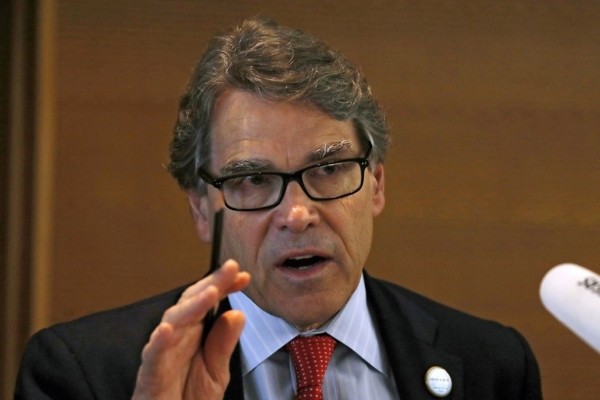
Washington, D.C. —(ENEWSPF)–July 11, 2017. The U.S. Department of Energy, led by Secretary Rick Perry, is soon due to release a report on the electricity grid and the role of “baseload power.” Ahead of the report’s release, the Center for American Progress has released a new column outlining what governors need to know about Perry’s grid study and the potential impact on states’ electricity systems and markets, utility commissions, public health and clean air, and jobs.
“Due to the role that states play in ensuring the reliable and affordable delivery of power to customers, governors have a unique responsibility to ask how Secretary Perry’s grid study may affect their states,” said Luke H. Bassett, associate director of domestic energy and environment policy at CAP. “This includes whether Perry’s grid study neglects the real impacts of carbon pollution on public health or overlooks the rapid growth and job opportunities created by clean energy.”
Governors and their state utility commissions stand exposed to the grid study’s potential impacts on grid operations, regulatory authority, energy policymaking, job creation, and clean energy markets. As such, CAP’s column outlines four questions that governors must consider when the Department of Energy’s report is released:
- What is “baseload power,” and is it actually necessary to my state’s electric grid? While baseload power resources have had and will continue to have an important role in the electric grid, other generation sources are joining their ranks and replacing them. Two recent reports responded to the announcement of Perry’s grid study and conclude that market forces—such as low demand growth for electricity and low natural gas prices—and new generation resources have contributed significantly to the changing U.S. electric grid but do not harm its reliability and actually present new opportunities for flexibility, efficiency, and other grid services.
- How would Perry’s grid study affect my state’s utility commissioners? Governors should stand guard and ask questions—particularly regarding any emergency declaration—and ensure that they retain their authority and protect the authorities of their appointed state regulators and the independent grid operators managing the power system.
- How could Perry’s grid study affect my state’s clean energy markets and job growth? If Perry’s grid study recommends interventions that support “baseload power” over clean energy sources in state-level regulations, the setting of standards, or incentives, the impact on clean energy growth could undermine what is currently a $9.4 billion U.S. market. For states that have invested in clean energy and energy efficiency, those interventions could stymie current job growth in clean energy industries, which has reached more than 470,000 workers in solar and wind energy and approximately 2.2 million in energy efficiency. State leaders need to be armed with information about the study’s impacts on their authority and their state’s electric grid, generation mix, and related jobs.
- Would Perry’s grid study affect my state’s clean air and public health protections? Any of Perry’s policy recommendations that prop up new or existing coal-fired power plants will harm clean air and public health, and communities may face ongoing or increasing risks from air pollution caused by burning coal.
Click here to read “Questions Every Governor Should Ask About the Department of Energy’s Grid Study” by Luke H. Bassett.
Source: http://americanprogress.org








